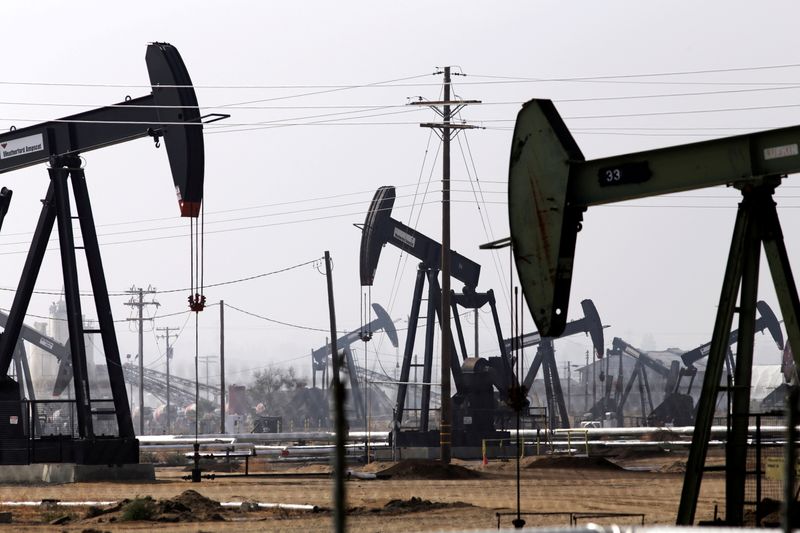By Laura Sanicola
NEW YORK (Reuters) -Oil settled down 1% on Tuesday, posting its first monthly loss since March, as demand is expected to drop after Hurricane Ida shuttered U.S. Gulf refineries.
Brent crude futures for October, due to expire on Tuesday, settled down 42 cents, or 0.6%, at $72.99 a barrel.
U.S. West Texas Intermediate (WTI) crude futures settled down 71 cents, or 1%, at $68.50.
Both benchmarks posted their first monthly losses since March, even though they are not far from July highs. Brent lost 4% in July while U.S. crude fell 7%.
Hurricane Ida, which made landfall in the United States on Sunday as a Category 4 hurricane, knocked out at least 94% of offshore Gulf of Mexico oil and gas production and caused "catastrophic" damage to Louisiana's grid.
Prices were pressured by concerns that power outages and flooding in Louisiana after Hurricane Ida will cut crude demand from refineries.
About 1.7 million barrels per day (bpd) of offshore oil production was shut, but that output may resume more quickly than many refining operations along the Gulf that lost power. Analysts at FGE said in a Tuesday note they expect roughly three-quarters of offshore output to resume by the end of the week.
OPEC and allied producers in OPEC+ had agreed to add 400,000 bpd to monthly supply until the end of December. Sources told Reuters the group is likely to maintain that plan despite U.S. pressure for more output..
OPEC's own data showed the market will face a deficit until the end of 2021 but then flip into a surplus in 2022.
"It would hurt OPEC+'s credibility to change the terms after only one month," said Bob Yawger, director of energy futures at Mizuho.
The Colonial Pipeline - the largest U.S. fuel line to the East Coast - restarted its main gasoline and distillate lines on Tuesday after shutting them ahead of the storm, but some refineries are reporting damage to their plants.
Royal Dutch Shell (LON:RDSa) Plc said it found evidence of building damage at its 230,611 barrel-per-day (bpd) Norco, Louisiana, refinery, a company spokesman said on Tuesday.
"If refiners recover capacity in two to four weeks, then we should be OK. Beyond that, we will be driving inventory levels very low and prices may start to react meaningfully higher,” said Rebecca Babin, senior energy trader at CIBC Wealth.

U.S. crude stocks fell by 4 million barrels, while gasoline inventories rose by 2.7 million barrels and distillate stocks fell by 2 million barrels, according to two market sources, citing American Petroleum Institute figures on Tuesday.
Official inventory data from the U.S. Energy Information Administration is expected Wednesday.